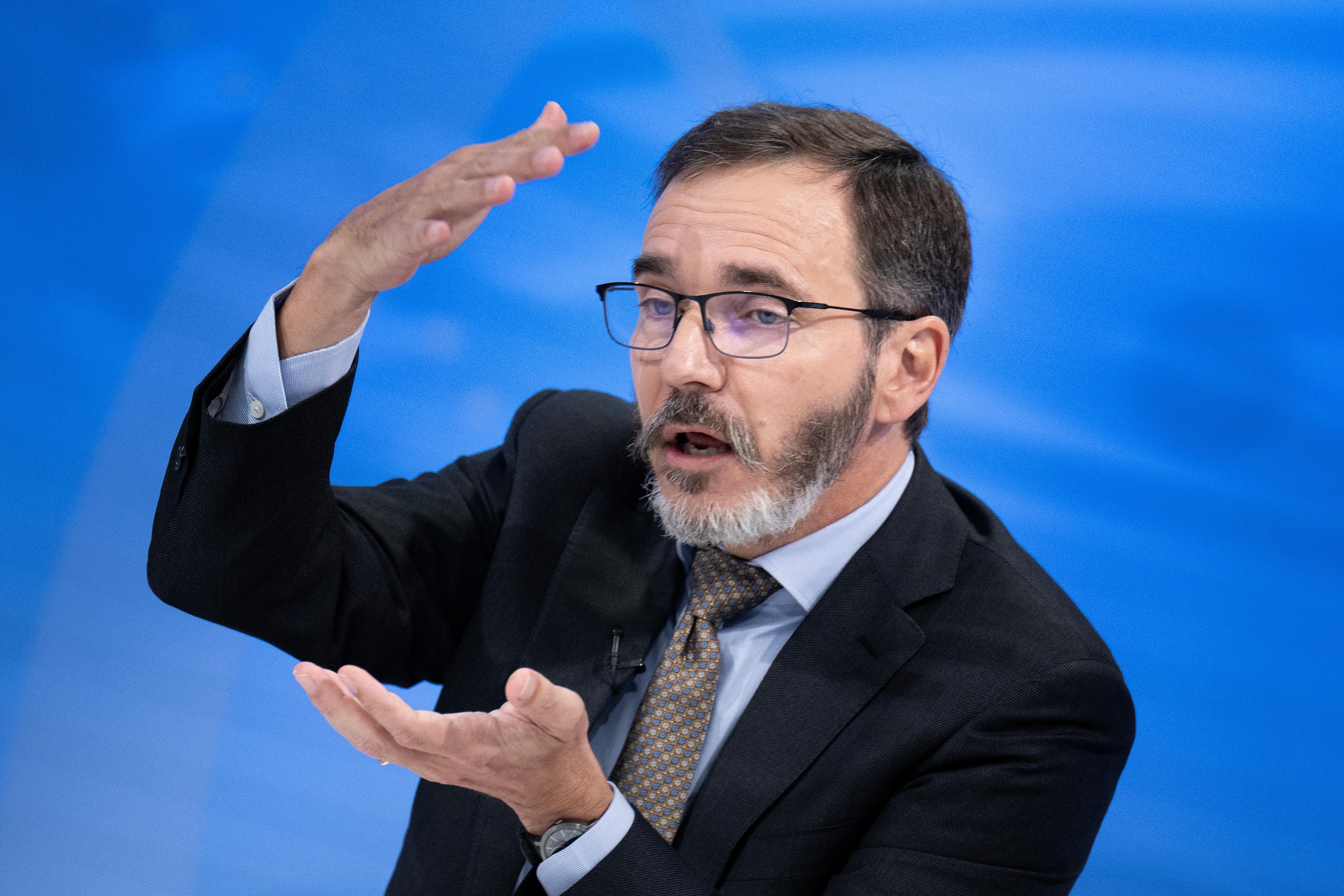 International Monetary Fund (IMF) chief economist, Pierre-Olivier Gourinchas participates in a news conference on the IMF release of the World Economic Outlook Update, at IMF headquarters in Washington, DC, on July 25, 2023. (PHOTO / AFP)
International Monetary Fund (IMF) chief economist, Pierre-Olivier Gourinchas participates in a news conference on the IMF release of the World Economic Outlook Update, at IMF headquarters in Washington, DC, on July 25, 2023. (PHOTO / AFP)
WASHINGTON - The International Monetary Fund on Tuesday called for better coordinated efforts to address the causes of climate change, warning extreme weather is posing material risks to countries globally, especially developing economies already saddled with high debts.
IMF Chief Economist Pierre-Olivier Gourinchas said the case of Argentina, which has seen a prolonged financial crisis worsened by a ferocious drought that reduced agricultural exports by an estimated $20 billion this year, showed how profoundly weather events could exacerbate existing strains.
Argentina on Monday set new weaker trade-related exchange rates as it raced to reach an agreement with the IMF and bring forward billions of dollars in disbursements from its $44 billion IMF program.
The global lender on Tuesday raised its 2023 global growth estimates slightly, but warned that low productivity growth and sluggish trade meant growth would likely level off at around a historically low 3.0 percent for years
Some countries were finding it "very, very difficult" to maintain market access in the current environment, with interest rates and debt service costs climbing, Gourinchas said in an interview with Reuters about updates to the IMF's global outlook.
The global lender on Tuesday raised its 2023 global growth estimates slightly, but warned that low productivity growth and sluggish trade meant growth would likely level off at around a historically low 3.0 percent for years.
ALSO READ: IMF edges 2023 global economic growth forecast higher
A big worry, it said, was the slowing rate at which developing countries are catching up to advanced economies, and their exposure to greater risk in the event of financial market volatility that could further boost the US dollar's value.
"In the case of Argentina, clearly one thing that doesn't help at this point for the growth outlook is they are facing a severe drought that is affecting agricultural output," Gourinchas said. "When you're in a situation that is fiscally fragile to start with, where you don't have a lot of room, and you get bad news ... then of course the situation becomes more difficult."
Gourinchas said extreme weather events, including heat waves facing Europe and other regions, and this year's El Nino weather pattern, which could lead to heavy rainfall or temperatures, would affect crop yields and the ability of people to work.
"Clearly this increasing frequency of extreme weather events ... is making it especially urgent that we tackle the root cause of climate change," he said. "More needs to be done."
READ MORE: Scientists: Climate change role in July heatwaves 'overwhelming'
Gourinchas said any fragmentation of the global economy into disparate blocs as a result of the conflict in Ukraine would be disruptive, but would hit emerging market and developing economies particularly hard.
"We need to have a multilateral approach to climate that can only be dealt with in a global sense - making sure that all the countries do an effort that is proportionate to their responsibilities and to their means," he said, although he conceded reaching that goal would be complicated.
Gourinchas said emerging market economies also faced a "quite serious" risk of disruptions causes by any further financial market volatility, or an escalation of the Ukraine crisis.
"If we have a sharp appreciation of the dollar, if we have a sharp tightening of financial conditions, a drop in risk appetite ... then that could be devastating and could ripple into many emerging markets," he said.
READ MORE: IMF chief expects global growth around 3% for next five years
The IMF last month announced it had hit its target of making $100 billion in special drawing rights - the fund's own special reserve currency - available for vulnerable nations.
But wealthy nations have yet to come good on climate finance they promised as part of a past pledge to mobilize $100 billion a year, a key stumbling block at global climate talks.


